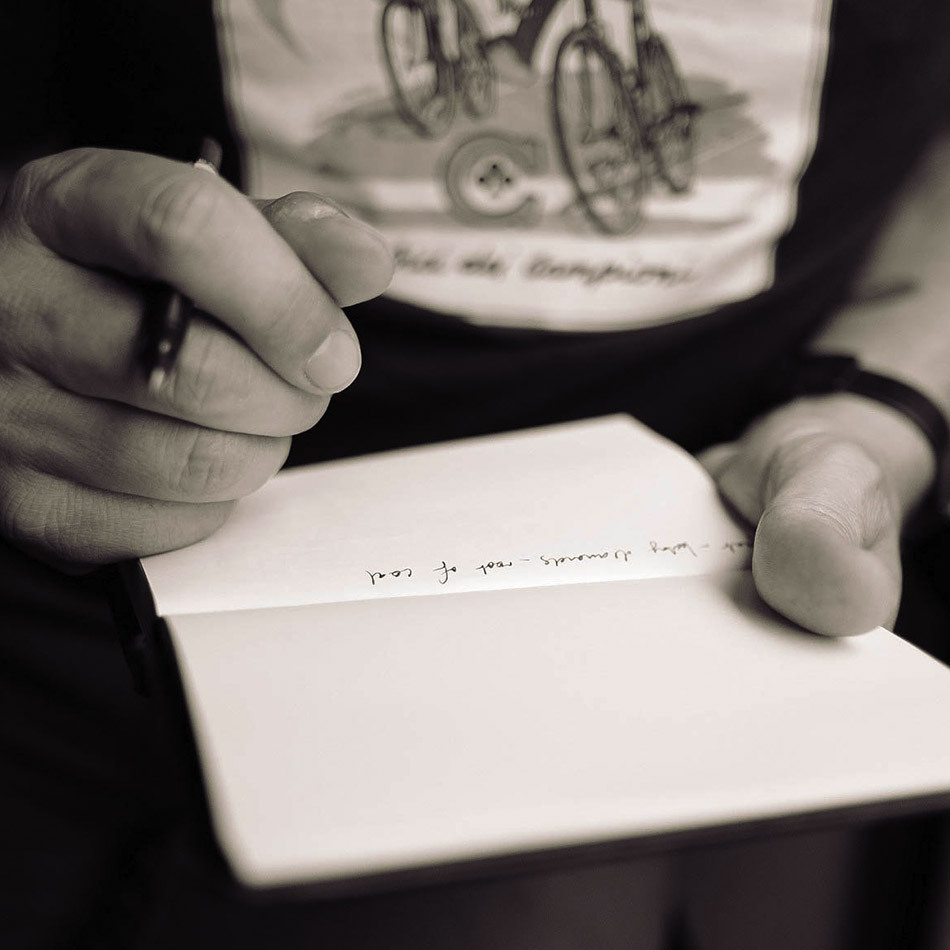There are seven and a half billion people on this planet, each ricocheting through their own routines, rituals, and habits. We are all unique, and yet we also interact and impact one another’s lives in ways that often go unnoticed.
At every scale, whether that’s continents, countries, cities, communities, couples, or even the act of you reading my article right now, you’ll find ways in which your life is influenced by things outside of your control.

Looked at with a glass half empty, being human is complete and utter chaos. You could argue that we have alarmingly little say in anything, and in the grand scheme of things whatever we do achieve is fleeting and insignificant.
But, seen through a different lens, being human is magical. In spite of the spiraling world around us, we set ourselves crazy goals and achieve them through steadfast positivity and sheer willpower.

We constantly push ourselves to create order from the chaos. This is because we are all storytellers.
Stories as old as time
Consider how you consume stories, through TV, film, music, books, social media, conversations, even daydreaming at the watercooler. Now think about cave paintings, poems, folklore, and fairytales; humans have been doing this forever.

The reason they’re so universal is that humans are hard-wired for story. It’s as natural to us as eating and breathing. Story is how we learn about the world around us. It can give us greater control and direction, and it can help us understand those who are different from us.
I, like many students of the craft, like to break narrative into five stages – the inciting incident, progressive complication, crisis, climax, and resolution. Over the years, we’ve seen countless protagonists follow this journey to achieve their goals. It’s a journey we all travel in our own stories as well.
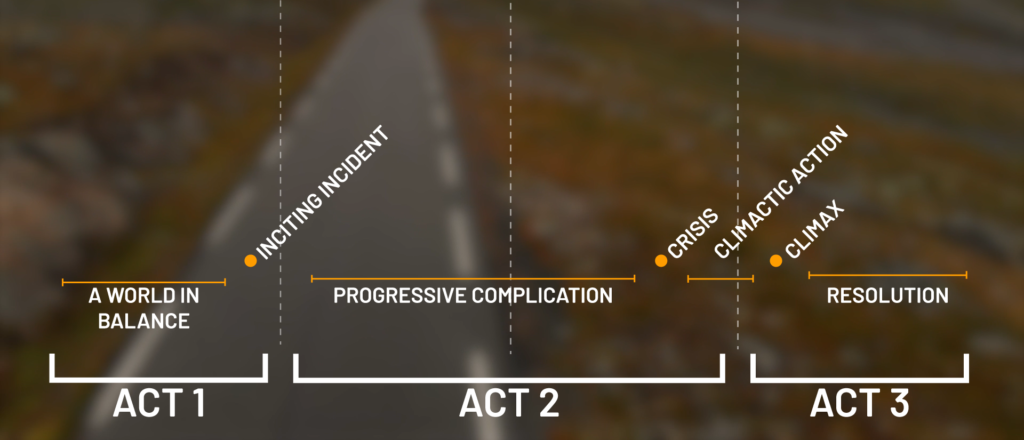
We rise above challenges in the real world every single day. When we’re mindful of this, we can feel powerful, purposeful, and driven. But, sometimes we miss a beat. We fall out of step with our own narrative. We stop recognising ourselves as the hero, and we feel like the chaos is closing in.
I’m going to share a story about when I recently felt like this. It was at the start of the Covid-19 pandemic, a time when a lot of people’s lives will have felt even more chaotic than usual. All seemed lost, but the power of storytelling helped me order the chaos, and find my way again.
Setting the scene
I’d had the best six months of my life. I got married in September, we went on our honeymoon in November, and in February we installed a brand new kitchen. My bank balance was as devastated as that sentence implies but, as a freelance Director, my calendar was curiously full. This was shaping up to be my year. I was all set to make my finest work, and to clear my debts in the process.
Enter Coronavirus.
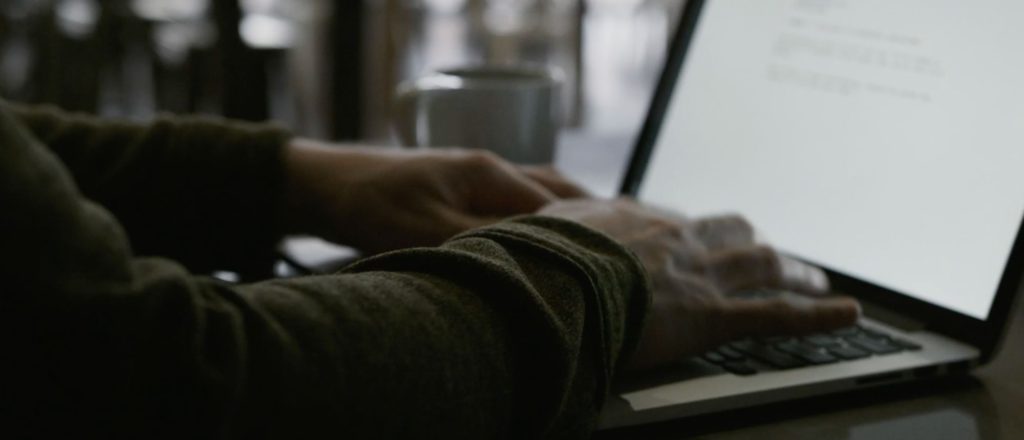
Within a week my work disappeared. Email after email, call after call, it was all the same, “Sorry, we can no longer move forward with this project because of… you know, the apocalypse.”
With zero work on the horizon, every bill and every meal pushed us further into debt. I was even forced to cancel my wife’s 30th birthday surprises. As the milestone passed with minimal fanfare, I felt like a failure.
The inciting incident
Then I received some more news. Had it come a month before I would have been as excited as my wife while she enthusiastically brandished a positive pregnancy test. I’d long decided I was going to be a fantastic dad, but at that moment – amid so much chaos – it pains me to admit that my first feeling was fear.
Of course, there was excitement, but awakening another morning closer to bankruptcy, to another day where my skills weren’t required, the lump in my throat felt like inadequacy. In that moment, my inciting incident, I decided that I wouldn’t feel that way in nine months’ time.
Progressive complication
I may have been out of work, but I could still keep myself busy. I’d always wanted to start a YouTube channel of tutorials on screenwriting. In the past, my problem was procrastination. As long as there was a nook to be tidied, a Wikipedia page to scour, or a train of thought to idle over, I could ignore my pet projects with alarming efficiency. But, a month into Covid-19 lockdown, there were zero distractions remaining.
With nowhere left to turn, I reached out to my notes on storytelling. I remember things by rewriting, so “notes” might not do justice to the cavernous folder of near-incomprehensible short-hand that I had accumulated over the years. All I needed to do was order the chaos.
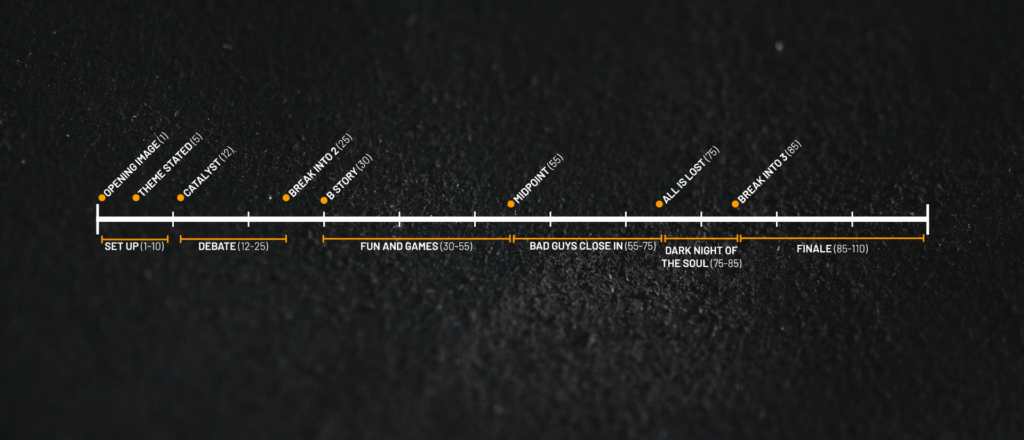
At first, I hated it. Then I was intrigued by it. Then twelve hours had passed and I was consumed by it. As a Director, I would unconsciously refer to these storytelling principles every single day. But when I began realising how things connected, it was fascinating to finally arrange the information in a way that made sense.
Crisis
I slowly became nocturnal, working until the early hours of the morning. It was around the same time that my wife’s nausea hit a series of fascinating peaks that ultimately culminated in a complete embargo on cooking in the flat and – the final nail in the motivational coffin – a veto on coffee. The satisfaction of the work was only matched by exhaustion like I’d never felt before.
Eyes drooping, devoid of social contact, losing weight, and watching the bank balance plummet, I doggedly persisted. No matter what, I was going to finish. I had enough failures to my name, and this wasn’t going to be one of them. It didn’t matter that the task had no physical gain. Psychologically, I needed a win.
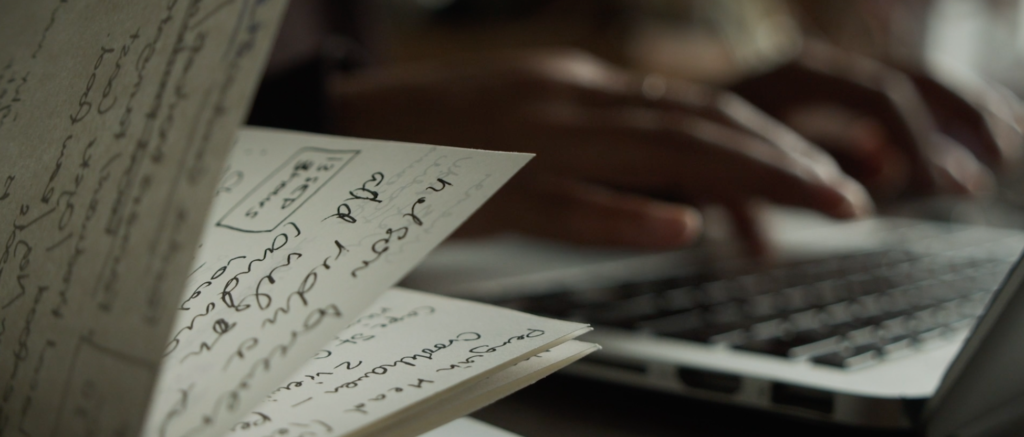
I went through the last of my scrappy notes, cobbled the information into place, then started to read through my work. As I did, I could feel the butterflies in my stomach. It was the early hours of the morning and I was utterly spent, but I couldn’t hold back a smile. It all made sense.
Climax
“Your protagonist must have a clear goal, and they must have the will and the means to achieve it.”
It hit me. I’d given myself the role of the useless, easily-distracted, unemployed Director. This pitiful existence was my story, at least that’s what I was telling myself.
In my head, Covid-19 had robbed me of my goals, and along with it my willpower. I didn’t back myself because I didn’t see myself as a protagonist in any story. Only through creating my own arbitrary goal of organising my notes did I give myself something to succeed in.
I had my goal, and dammit I was going to achieve it.
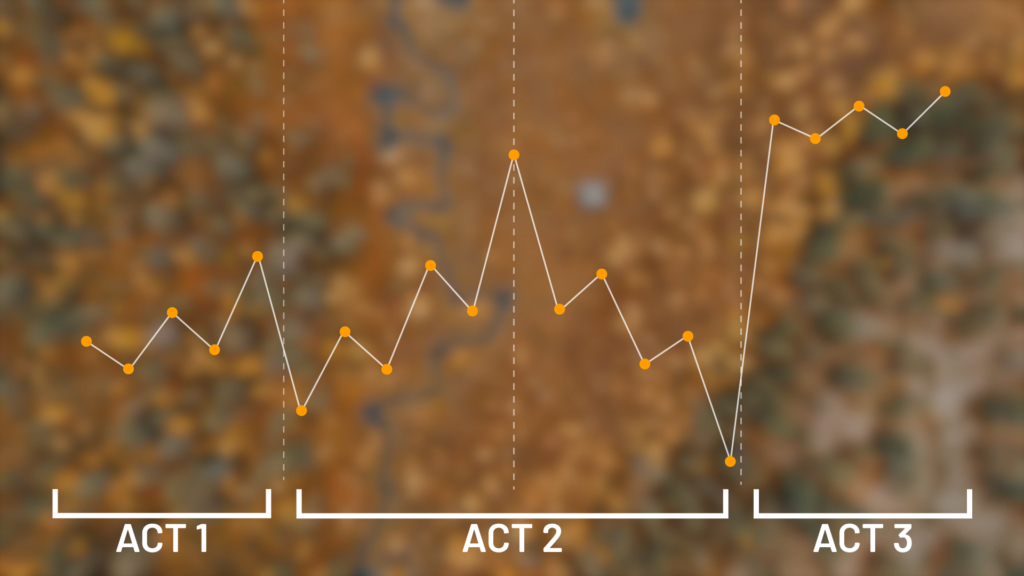
More than ever before, I understood the power of storytelling. We are hard-wired for stories because they help us to make sense of the world around us.
Stories allow us to strive for the things we want, to delight in the things we achieve, and to understand when things don’t go our way. Through stories, we can be the person we want to be, and we can learn to accept people who are different from ourselves.
As I jotted the title to my new document, ‘6 Steps to Writing a Screenplay’, I regained faith in my own ability. I achieved my goal, so it’s time to tackle a new one, I’m going to be a great dad.
Resolution
I believe that while stories help us make sense of the world around us, the appreciation of the craft of storytelling can help us understand ourselves.
How humans tick, and what drives us, is something universal, shared across cultures, and generations, and socio-economic groups. It’s common ground from which we can find a way to be more understanding of one another, and kinder to ourselves.
As this understanding of storytelling has helped me make sense of a little blip in my life, I hope that what I’ve learned might help others see positivity in their own journeys.
That’s why I’ve started a YouTube channel for storytellers, ‘ScreenStories’, where I hope to find a community of like-minded individuals who can teach and learn from one another.
Here’s my inaugural video, the first of my ‘6 Steps to Writing a Screenplay’.



